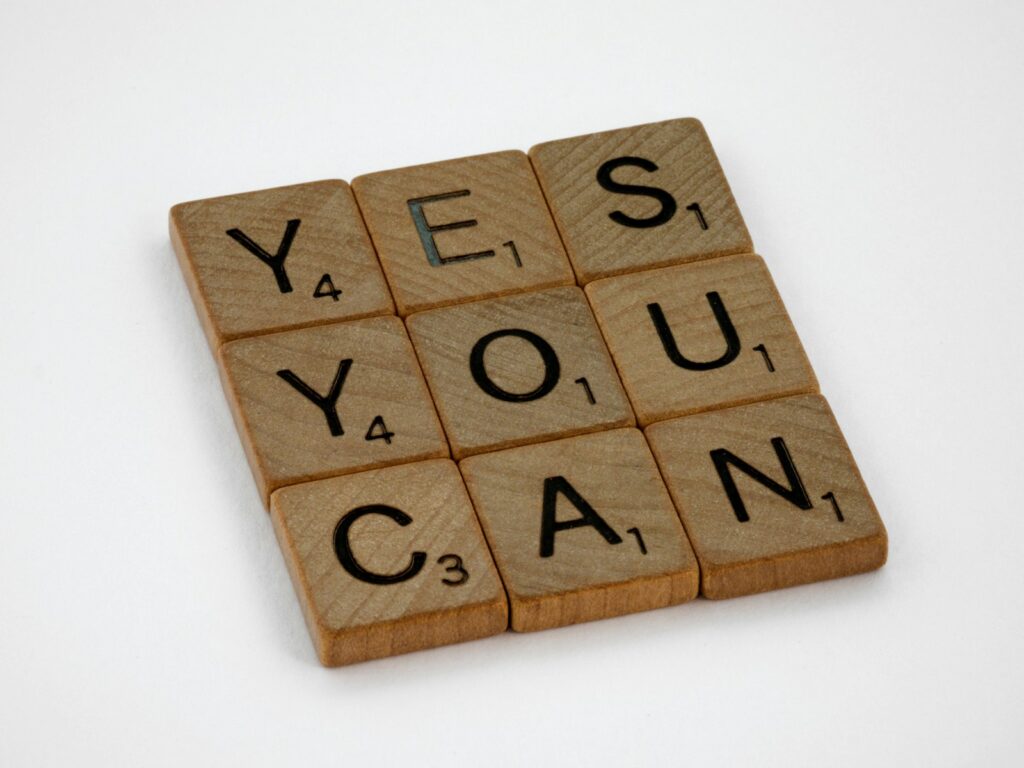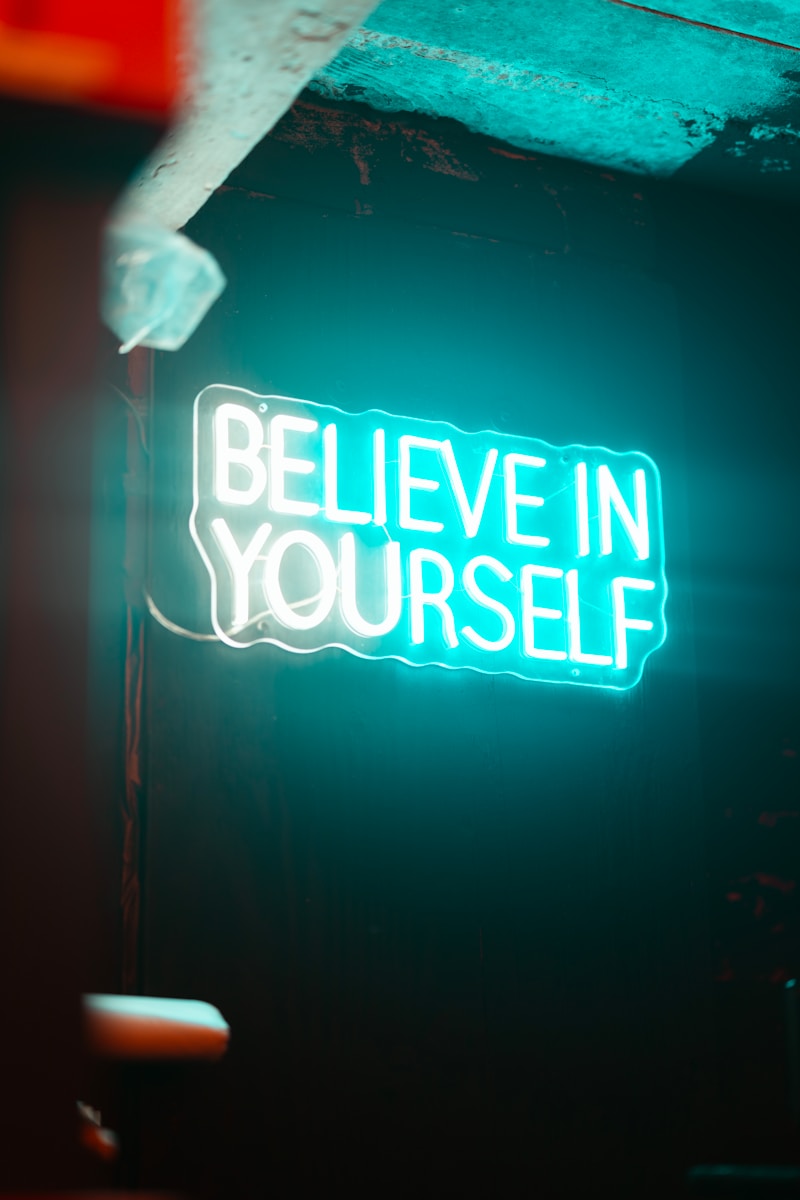Are you wanting to learn how to believe in yourself?
Self-belief isn’t about forcing yourself to repeat empty mantras or pretending everything is fine when it’s not. Real self-belief runs deeper than positive thinking—it’s built on evidence, experience, and a foundation of self-trust that can withstand life’s inevitable challenges.
I’m Dr. Matthew G. Mandelbaum, and over my 20+ years as a psychologist and teaching + learning expert, I’ve seen countless intelligent, sensitive individuals struggle with self-doubt despite their obvious talents and achievements. They come to me asking why they feel like frauds, why they second-guess every decision, and why everyone else seems so much more confident.
The truth is, most successful people have walked through valleys of self-doubt. What separates those who thrive from those who remain stuck isn’t an absence of fear—it’s the ability to build genuine self-belief through consistent action, reflection, and evidence-based thinking.
If you’re tired of surface-level “just think positive” advice and ready to develop unshakeable confidence from the inside out, this guide will show you how.
Ready to Start Therapy?
Your healing journey can begin today. Fill out the form below to connect with a therapist who truly listens and understands.

Photo by carolyn christine on Unsplash
Why Is It So Hard for Me to Believe in Yourself?
Self-doubt often feels like a personal failing, but it’s actually a common human experience rooted in very logical reasons. Understanding these causes helps us address them more effectively.
Past failures and criticism create limiting beliefs. Maybe a teacher once said you weren’t “math material,” or a boss criticized your presentation style. These moments can lodge themselves in your psyche, creating internal rules about what you can and can’t accomplish.
Comparison steals your joy and confidence. Social media amplifies this tendency, but it’s been around forever. When you constantly measure your behind-the-scenes reality against everyone else’s highlight reel, self-doubt inevitably follows.
You dismiss your own achievements. I’ve worked with clients who’ve earned advanced degrees, built successful businesses, or overcome significant trauma, yet they brush off these accomplishments as “luck” or “not that impressive.”
Negative self-talk becomes your default. That inner voice that says “you’re not good enough” or “you’ll probably mess this up” feels so automatic that you mistake it for truth rather than recognizing it as one perspective among many.
Here’s what I want you to understand: Self-doubt doesn’t indicate a lack of ability. It often indicates a lack of practiced self-trust. The good news? Trust can be rebuilt, one small promise to yourself at a time.
How to Believe in Yourself Step-by-Step | Get Rid of Self-Doubt and Gain A Growth Mindset
Believing in yourself is the foundation of self-confidence and achieving your personal goals. It begins with cultivating a positive mindset and practicing positive self-talk to combat the negative emotions that often hold us back.
When you take ownership of your own life, you empower yourself to overcome challenges, even when things happen unexpectedly or you feel like you’ve hit rock bottom. Building self-esteem and self-worth requires faith in your ability to handle difficult tasks, learn new skills, and keep moving forward.
By focusing on all the things that bring joy, growth, and meaning into your life, you can start to replace self-doubt with resilience and gratitude. With time and effort, you can build the confidence to turn obstacles into opportunities, allowing happiness and success to happen naturally.
Acknowledge and Celebrate Past Successes
Your brain has a negativity bias—it remembers threats and failures more vividly than victories. To counter this, you need to deliberately collect evidence of your competence.
Start a “wins journal” where you document both major achievements and small daily victories. Include everything from “I got a promotion” to “I had a difficult conversation with Grace” to “I cooked a meal instead of ordering takeout.”
One of my clients initially struggled with severe self-doubt after a career setback. We started by having her list every project she’d completed successfully in the past five years. By the end of our session, she had filled two pages and said, “I forgot how much I’ve accomplished.”
Set Achievable Goals & Build Momentum
Confidence builds through competence, and competence develops through repeated success with progressively challenging tasks. Break your larger aspirations into smaller, manageable steps that you can accomplish regularly.
If you want to change careers, don’t jump straight to “find my dream job.” Start with “research three companies I admire” or “update my LinkedIn profile.” Each completed step builds evidence that you can handle the next one.
This approach helps reduce anxiety because you’re never facing an overwhelming mountain—just the next achievable step. Success breeds success, creating positive momentum that carries you forward.
Challenge Limiting Beliefs & Negative Self Talk
Your thoughts aren’t facts, even though they feel true. Cognitive reframing—a core technique I use with clients—helps you examine the evidence for and against your self-critical thoughts.
Instead of accepting “I always mess things up,” ask yourself: Is this actually true? What evidence supports this? What evidence contradicts it? Often, you’ll find that your self-criticism is based on isolated incidents rather than consistent patterns.
I helped one client reframe their negative self-talk from “I always fail at relationships” to “I’ve learned valuable lessons from past relationships, and I’m developing better communication skills.” This shift from shame to a growth mindset made all the difference in their confidence to try again.
Step Outside Your Comfort Zone
Your comfort zone is a beautiful place, but nothing ever grows there. Gradual exposure to manageable challenges strengthens your self-efficacy—your belief in your ability to handle what life throws at you.
Start small. If public speaking terrifies you, don’t begin with a keynote address. Share an idea in a team meeting, then maybe present to a small group, gradually building your tolerance for the discomfort.
Each time you do something that scares you a little and survive (or even thrive), you expand your sense of what’s possible. You prove to yourself that fear is often False Evidence Appearing Real.
Practice Positive Affirmations That Align with Truth
Generic affirmations like “I am perfect just as I am” can feel hollow when you’re struggling. Instead, create personal statements rooted in evidence and tied to your specific goals.
Rather than “I never fail,” try “I have the skills to handle challenges, and when I make mistakes, I learn from them.” Instead of “Everyone loves me,” use “I am worthy of healthy relationships, and I’m learning to communicate more effectively.”
Speak these affirmations in the present tense, as if your growth is already in progress—because it is.
Visualize Success in Detail
Mental imagery isn’t just wishful thinking; it’s a powerful tool that athletes, leaders, and performers use to prepare their minds for success. When you visualize achieving your goals in vivid detail, your brain begins to treat the imagined success as familiar territory.
Martin Luther King Jr. painted such a clear, compelling vision of racial equality that millions could see it too. His “I Have a Dream” speech wasn’t just rhetoric—it was a detailed visualization that made change feel possible and inevitable.
Spend time imagining not just the outcome you want, but the specific steps, the challenges you’ll overcome, and how success will look, feel, and sound.
Surround Yourself with Supportive People
You become who you spend time with. If your circle consists of people who consistently doubt your abilities or discourage your dreams, it’s time to expand your network.
Seek out friends, mentors, and communities that believe in growth and possibility. This doesn’t mean surrounding yourself with yes-people, but rather those who challenge you to grow while supporting your journey.
Sometimes this means limiting time with family members or old friends who keep you trapped in outdated versions of yourself. It’s not about cutting people off permanently, but about protecting your developing self-belief during vulnerable stages of growth.
Learn from Setbacks Without Letting Them Define You
Failure isn’t the opposite of success; it’s part of success. Most people who achieve meaningful goals have stories of multiple setbacks, rejections, and course corrections along the way.
When something doesn’t go as planned, ask yourself: What did I learn? What would I do differently? What worked well that I can build on next time? This reframes setbacks as valuable data rather than evidence of your inadequacy.
Remember, failure is an event, not an identity. You’re not a failure because something didn’t work out—you’re someone who tried something that didn’t work out this time.
Keep Promises to Yourself
Self-trust is built the same way trust with others is built—through consistent follow-through on commitments. Every time you tell yourself you’ll do something and then do it, you strengthen your belief in your own reliability.
Start with small promises: “I’ll drink eight glasses of water today” or “I’ll go to bed by 10 PM.” As you consistently honor these micro-commitments, you’ll find it easier to trust yourself with bigger promises.
This is foundational work. If you don’t trust yourself to follow through on small things, why would you believe you can achieve larger goals?
Practice Self-Love Daily
Self-belief flourishes in an environment of self-compassion. This means treating yourself with the same kindness you’d show a good friend, especially during difficult times.
Daily self-love practices might include: taking time for activities that bring you joy, speaking to yourself with kindness, setting healthy boundaries, celebrating small wins, or simply acknowledging your efforts regardless of outcomes.
When you consistently treat yourself with respect and care, you send a powerful message to your subconscious: “I am worthy of good things.”

Photo by Brett Jordan on Unsplash
What to Say to Believe in Yourself & Build Confidence
The way you speak to yourself matters more than you might realize. Your internal dialogue shapes your reality, so choosing empowering language is crucial for developing genuine self-belief.
Here’s my top tip: Speak in the present tense as if your success is already in progress. Your brain responds better to “I am developing confidence” than “I will be confident someday.”
- Instead of: “I can’t handle this.” Try: “This is challenging, and I’m learning how to handle it.”
- Instead of: “I always mess up.” Try: “I’ve done hard things before; I can do them again.”
- Instead of: “I’m not qualified.” Try: “I have valuable skills, and I’m continuing to grow.”
- Instead of: “What if I fail?” Try: “What if I succeed? And if I don’t, what will I learn?”
These reframes aren’t about lying to yourself—they’re about choosing more accurate, empowering perspectives that acknowledge both your humanity and your capability.
Does Believing in Yourself Work? | Your New Skill Needs To Be Self-Belief
The short answer is yes, but not in the magical way some self-help books suggest. Self-belief works because it influences your actions, and actions create results.
Research on self-efficacy shows that people who believe in their abilities are more likely to take on challenges, persist through difficulties, and recover quickly from setbacks. They’re also more likely to see opportunities where others see obstacles.
Self-belief doesn’t guarantee you’ll never face rejection, failure, or disappointment. What it does is ensure that these inevitable human experiences won’t derail you permanently.
When you truly believe in yourself, you show up differently. You speak with more conviction, take calculated risks, and project the kind of confidence that makes others want to believe in you, too. This creates a positive feedback loop where external validation reinforces your internal belief.
But here’s the crucial point: The belief has to feel real to you first. You can’t fake your way to genuine confidence. It has to be built on a foundation of evidence, self-compassion, and consistent action.

Moving Forward with Unshakeable Self-Confidence, Self-Efficacy, & Self-Esteem
Real self-belief isn’t built overnight, and it’s not maintained through positive thinking alone. To fully reach your goals and lead yourself to becoming the person you want to be, it means you need to put in the effort to build confidence, use nice words to yourself, and don’t let your brain hold you back.
It’s cultivated through consistent action, honest self-reflection, and the daily choice to treat yourself as someone worthy of good things.
Start small. Choose one strategy from this guide and commit to practicing it for the next week. Maybe it’s keeping a wins journal, or reframing one negative thought per day, or making and keeping one small promise to yourself.
Track your progress. Notice how your internal dialogue shifts. Celebrate the moments when you choose courage over comfort, action over avoidance, self-compassion over self-criticism. For more support as you navigate life’s transitions, discover essential steps to embrace change with confidence.
Remember, the moment you start believing in yourself—really believing, not just hoping—you change what’s possible in your future. You stop waiting for permission to pursue your goals and start taking the steps that make them a reality.
As someone who has spent over two decades helping intelligent, sensitive individuals overcome self-doubt and build lasting confidence, I can tell you this: The work is worth it. You are worth it. And the world needs what you have to offer when you’re operating from a place of genuine self-belief rather than fear.
If you’re ready to dive deeper into this work with personalized support, I’m here to help. Through my practice at Groundbreaker Therapy, I provide evidence-based strategies tailored to your specific challenges and goals. Together, we can transform your relationship with yourself and unlock the confidence that’s been waiting inside you all along.
Schedule a consultation today and take the first step toward the unshakeable self-belief you deserve.
Learn More: Self-Belief, Self-Care, Self-Worth, Self-Esteem & Confidence
Educational Articles & Guides
- Psychology Today – Self-Esteem Basics
- Verywell Mind – How to Improve Your Self-Esteem
- Mind.org – How to Improve Your Mental Wellbeing
- National Alliance on Mental Illness (NAMI) – Self-Care
- American Psychological Association – Building Your Resilience
- Healthline – Self-Worth: Why It Matters & How to Build It
- The Mayo Clinic – Self-Esteem Check: Too Low or Just Right?
- BetterUp – Self-Confidence Tips & Tools
Workshops & Courses
- Coursera – The Science of Well-Being (Yale University)
- Udemy – Confidence & Self-Esteem Courses
- Skillshare – Personal Development Classes
- MindValley – Self-Confidence Programs
Self-Care Practices & Mindfulness
- Headspace – Meditation & Mindfulness
- Calm – Guided Meditations & Sleep
- Insight Timer – Free Meditations
- Tiny Buddha – Simple Wisdom for Complex Lives
- Self-Compassion.org – Dr. Kristin Neff’s Work
Confidence & Goal-Setting Tools
- Tony Robbins – How to Build Unstoppable Self-Confidence
- James Clear – Goal Setting & Habit Building
- Brian Tracy – Confidence & Success Strategies


